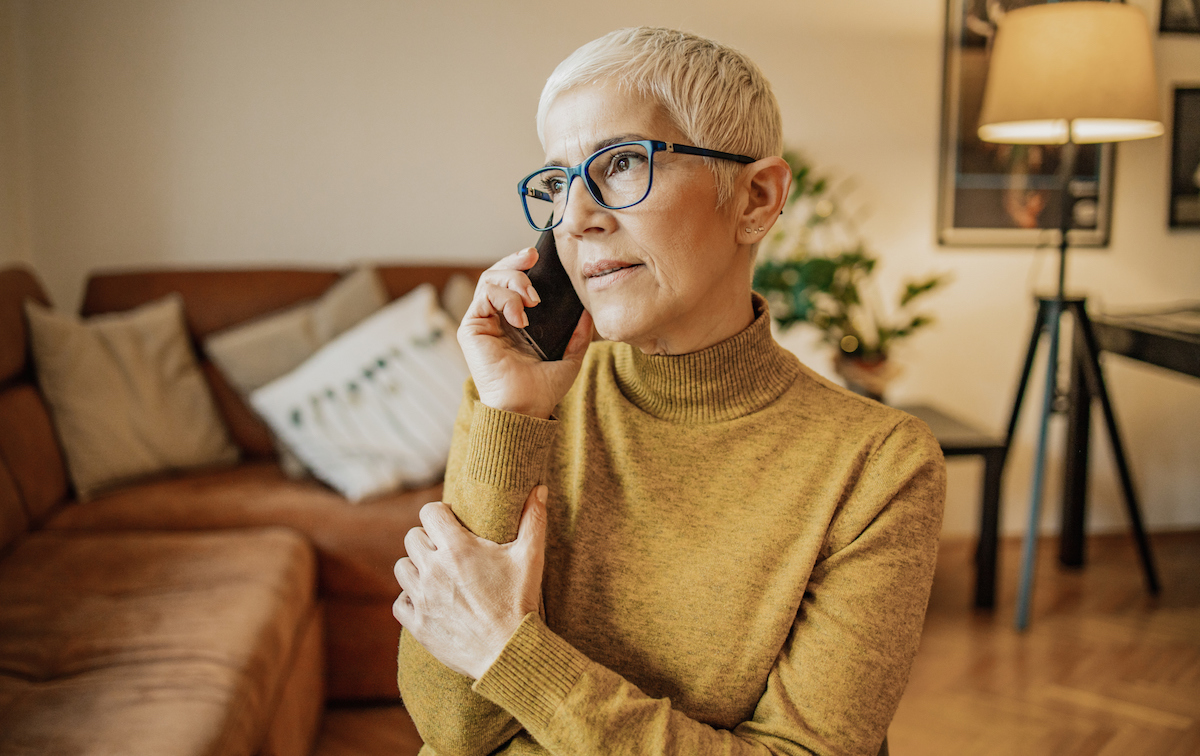Recently, Betty Duncan, a Geriatric Care Manager for Hartford HealthCare’s Center for Healthy Aging, arrived at the home of a client for their usual weekly appointment. The woman, in her early 80s and living with dementia, did not answer Duncan’s knock.
“I knew she was home, so I knocked and knocked again, and finally she opened the door,” Duncan said. “She was all flustered and upset, really in a tizzy. I asked what was wrong and she said there was a man on the phone who needed money.”
Duncan got on the phone and quickly realized it was a scammer who had come dangerously close to convincing the woman to send a large amount of money from her account. Duncan hung up the phone. She notified the client’s daughter, who lives overseas, who checked the accounts and ensured that everything was safe.
Duncan then taped a large note to the phone that read, “DO NOT ANSWER THE PHONE UNLESS YOU RECOGNIZE THE NUMBER.”
According to the FBI, reports of financial crimes against the elderly are on the rise:
- Older people are swindled out of more than $3 billion each year.
- More than 3.5 million older adults are victims of financial exploitation each year.
- Seniors targeted by fraudsters suffer an average loss of $34,200.
Seniors are often targeted because they tend to be trusting and polite. They also usually have financial savings, own a home, and have good credit — all of which make them attractive to scammers.
Duncan said three good guidelines to review with elderly loved ones or friends are:
- Don’t ever answer the phone unless you recognize the number. Have someone set up caller ID on the phone if it isn’t there already.
- If a caller asks for any personal information — date of birth, Social Security number, financial account information — say no and hang up. A reputable company will send a letter and would never ask for that information on the phone.
- Don’t believe any story that a caller tells you about a loved one being injured or trapped in another country and needing money. Hang up and check with a trusted family member.
The Hartford HealthCare Center for Healthy Aging is a resource and assessment center designed to make it easier for seniors, their loved ones and caregivers to access essential information and services to attain the optimal quality of life.
Duncan has more than 30 years of clinical experience in home care. She has worked for Hartford HealthCare for more than a decade, previously as a transitional care coordinator/LPN and now as a Geriatric Care Manager with the Center for Healthy Aging. Betty’s passion is working one on one with clients in the home setting, as an advocate for their wishes and quality of life.
The Center’s Geriatric Care Management program benefits older people who need help with managing daily activities.
Geriatric Care Management benefits individuals who:
- Lack nearby family or friends to coordinate care.
- Are overwhelmed or confused navigating the complex healthcare system.
- Have multiple health issues.
- Need assistance to get to a doctor’s appointment.
- Struggle to perform personal care or follow a daily medication regimen.
What Geriatric Care Managers do:
- Visit clients regularly to ensure they are safe, eating properly, and taking their medications.
- Provide personalized coordinated service tailored to their unique needs.
- Attend medical appointments to facilitate better communication and follow-up, including transportation.
- Evaluate and manage in-home care support needs.
- Coordinate and plan for respite, assisted living or permanent care facility placement.
- Advocacy with respect to attending to personal matters and refer to financial and legal support when needed.
- Help arrange for private hire caregivers in the home.
- Provide assistance as needed.


